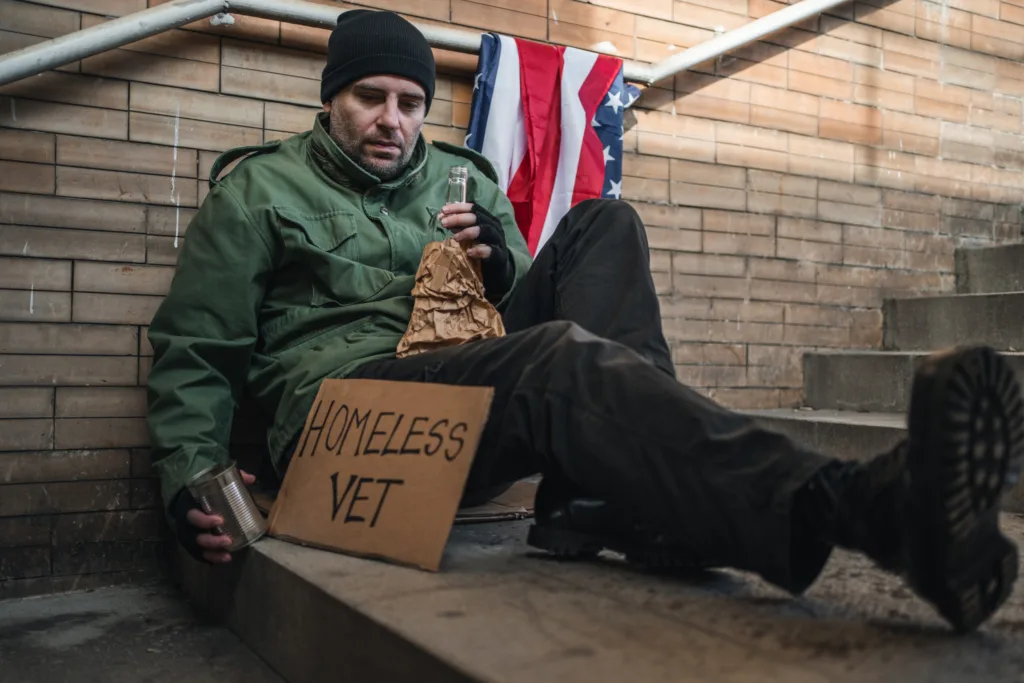A Closer Look At the Prevalence of Alcohol Abuse in the Veteran Community

We never want to play into stereotypes – they leave people feeling boxed in, with strange expectations and uncomfortable assumptions. One of these stereotypes is alcohol addiction among veterans.
Unfortunately, this stereotype does have some basis in reality. Statistics show that veterans do have a high rate of alcohol abuse. In order to best help our veteran community, it is crucial that proper treatment options are offered that are specifically tailored toward veteran recovery. Rather than accepting stereotypes as a sad reality, awareness and preventative strategies are promoted.
What are alcohol abuse statistics among veterans?
Alcohol abuse is one of the top mental health complications that veterans face. Statistics show that of those who do abuse alcohol, men are more likely to struggle than women – approximately 10.5 percent of men and only 4.8 percent of female veterans were noted to have a substance use disorder, according to one study.
Among veterans, those of younger generations are more susceptible to alcohol misuse, and those who struggled with reintegration into civilian life have also shown a greater likelihood of battling alcohol addiction.
An additional study completed by the National Institute of Drug Abuse (NIDA) compared alcohol abuse statistics of veterans versus non-veterans. The results are eye-opening:
“…veterans were more likely to use alcohol (56.6 percent vs 50.8 percent in a 1-month period), and to report heavy use of alcohol (7.5 percent vs 6.5 percent in a 1-month period). 65 percent of veterans who enter a treatment program report alcohol as the substance they most frequently misuse, which is almost double that of the general population.”
So what is the cause? Why is alcohol abuse so prevalent among past military members?
What are the causes of veteran alcohol abuse?
There is no one cause for the reason alcohol abuse is prevalent among veterans. A number of factors are present which may trigger the development of addiction.
Environmental influences
The military does have rather strict policies regarding alcohol consumption, but these are not upheld as rigorously as one might expect. A culture of drinking is present in the military, and when one spends a significant amount of time in a culture of drinking, it’s not uncommon for this lifestyle/these habits to continue when one’s time in the military is complete.
PTSD
Post-traumatic stress disorder is a huge mental health complication that a majority of veterans face. Veterans may have experienced trauma in a number of ways, including deployment, sexual abuse or trauma, emotional trauma, significant loss or unmanaged grief.
When trauma is unaddressed, significant mental health complications can arise; additionally, symptoms of trauma, including nightmares, flashbacks and panic attacks, may cause one to cope with alcohol for the sake of attempting to numb these symptoms and self-medicate.
Deployment
Individuals who were deployed are more likely to develop an alcohol use disorder than those who never faced deployment. Additionally, those who suffered trauma while deployed, including witnessing extreme violence, losing a friend or suffering an injury, are also more at risk for developing an addiction.
Difficulty transitioning
Returning from military life and adjusting back into civilian routine can be very difficult for some veterans. Alcohol consumption may be used as a means of coping with the challenges or negative emotions experienced during this time.
Additionally, if a habit of binge drinking was formed in the military, it would most likely continue into civilian life. It’s important during this transition to seek the right help so that healthy habits are formed during this transitional stage to better set you up for success long term.
Help for veterans
Alcohol abuse has numerous negative effects, including mental health complications, physical health effects and potentially damaging implications on relationships and responsibilities. It can stand in the way of you obtaining and maintaining a job, as well as put close friendships at risk and family ties that are important as you switch out of military life into civilian routines.
In order to best prevent an alcohol use disorder from occurring, or to keep an already present one from worsening, treatment for alcohol misuse should be considered. Through the guidance of a mental health professional, you will be able to pursue healthy coping mechanisms and learn the best way to keep unhealthy habits at bay.
Reach out today
To get started on your recovery journey with Pyramid Military Therapy, reach out online today or by calling our offices at 814-631-5676.



